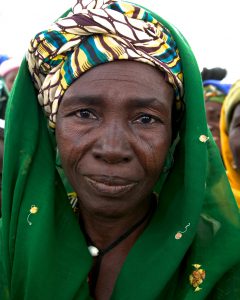by Shelton Owen

On March 8th, women around the world celebrated their femininity on International Women’s Day. The special day, observed since the early 1900s, is about recognizing the progress achieved while looking ahead to opportunities of advancement. Women have made great strides in the past century, socially, politically, and economically, but the battle is far from over. In 1908, great political unrest drove 15,000 women to march through New York City demanding better wages, shorter hours, and the right to vote. Today, gender pay gaps from the most advanced nations to unfathomable injustice in lower-income nations, drives us to keep walking, though our feet may be weary.
The women of Niger are all too familiar with the consequences of such an expansive gender gap; a divide so gaping it engulfs many of their aspirations and basic rights. According to our-africa.org, “The United Nations Children’s Fund (UNICEF) estimates that two-fifths of all African girls are married before the age of 18. In some countries the proportion is much higher. For example, in Chad and Niger, a third of young women (20-24) said they were married by the age of 15.” With marriage generally comes the termination of the woman’s education and beginning of her role as a wife and mother. Becoming a mother at such a young age is a high risk. With Africa making up 11% of the world’s population, Africa accounts for more than 50% of maternal deaths. Busy with motherhood and taking care of household tasks, such as seeking sanitized water, there is little to no time or motivation left to dedicate to a career. A limited education constricts the career options available to the woman and increases her dependency on her husband to serve as the provider. The wells built by WBH is just the start of empowerment waiting to spread like wildfire.
Before a well is drilled, a committee of villagers is formed to maintain the well and promote hygiene. The group of 6-7 usually consists of 3-4 women, giving them a meaningful role in village life. Wells Bring Hope gives Microfinance support to the women of Niger through a program involving educational instruction, hands-on practice, and eventually an independent career. Role models like Joyce Banda, the first female President of Malawi, are a promising symbol of hope for the future, a future in which women and men will be equal partners, working to make the world a better place.
The campaign theme for 2017 is “Be Bold For Change”; therefore, I encourage you to do your part today by empowering women in Niger through your donation to Wells Bring Hope. Take a stand and speak up for your sisters across the globe being told to shut up and sit down. Say it loud and say it proud–“Here’s to strong women. May we know them. May we be them. May we raise them.”


